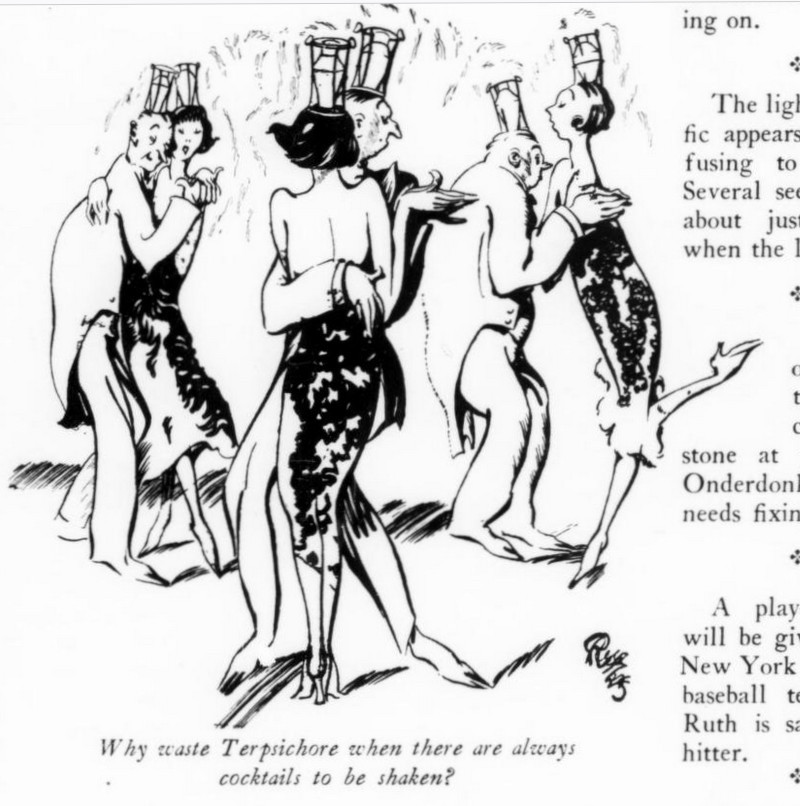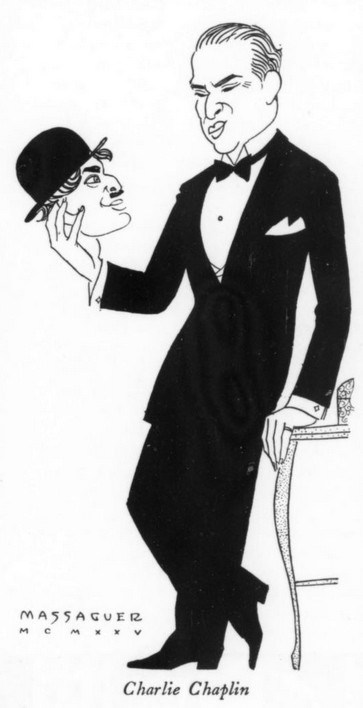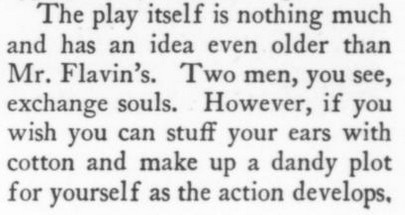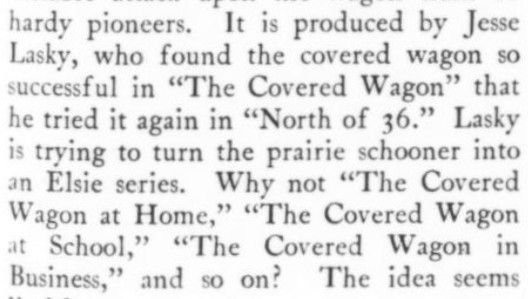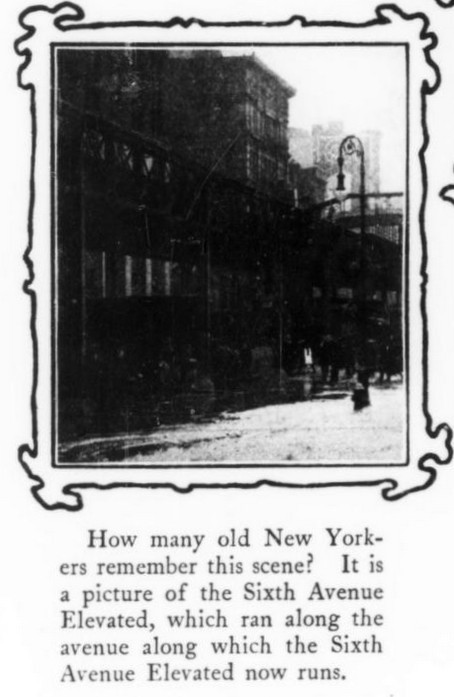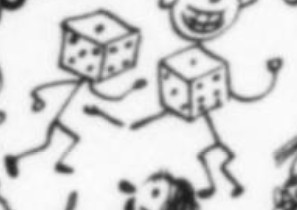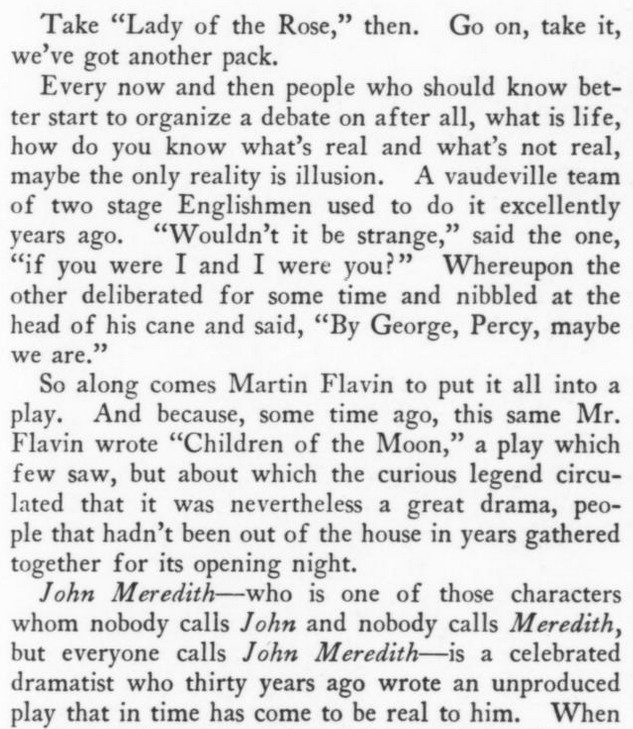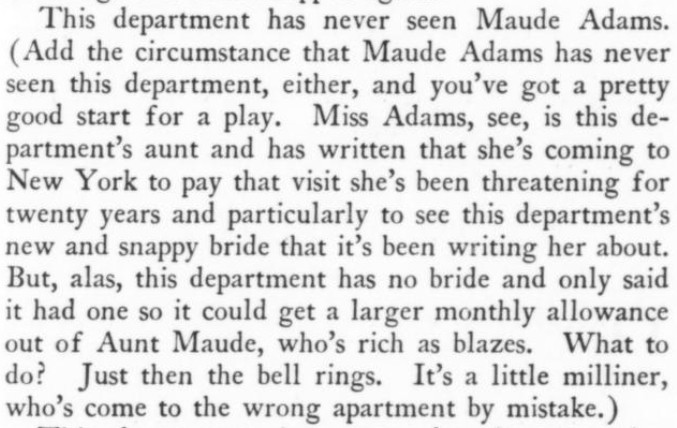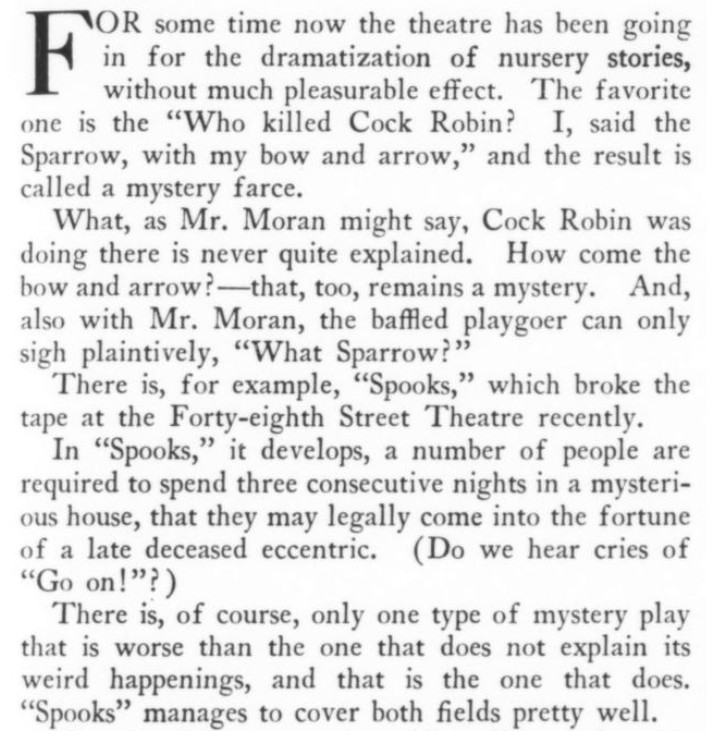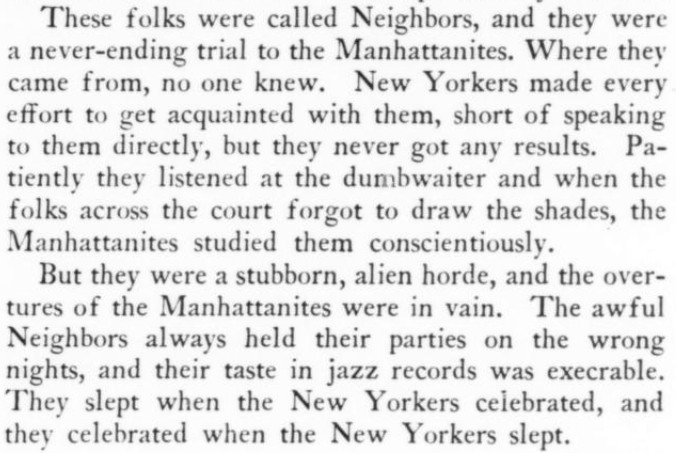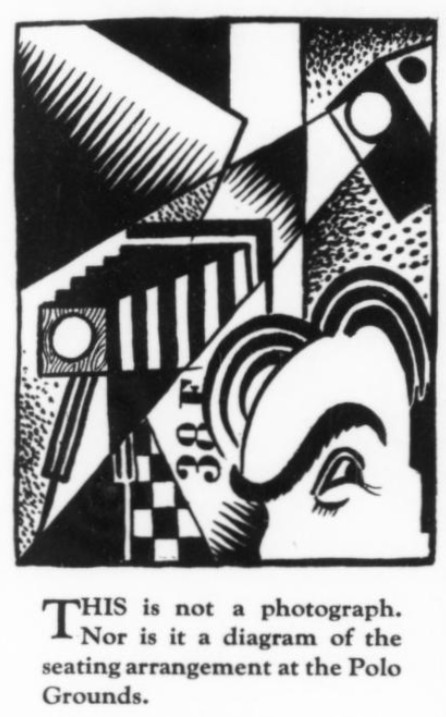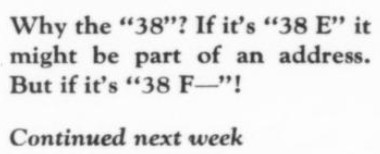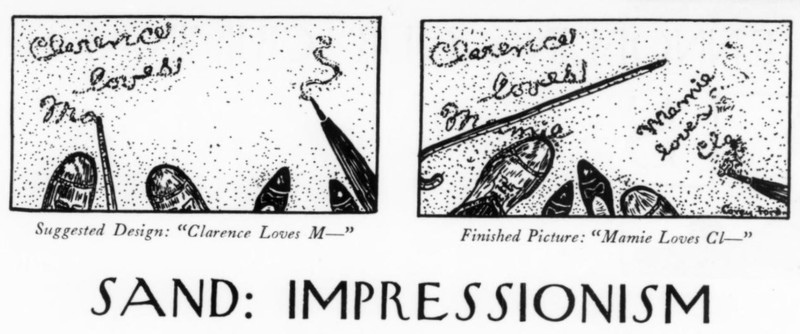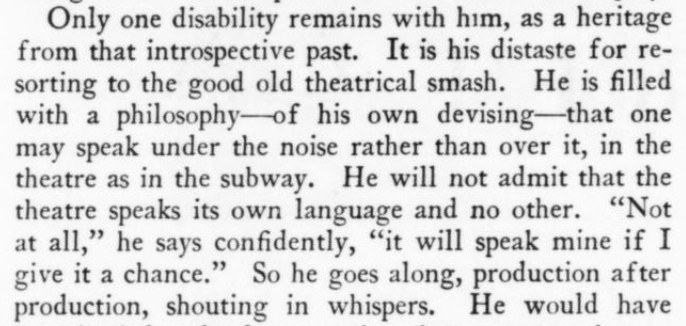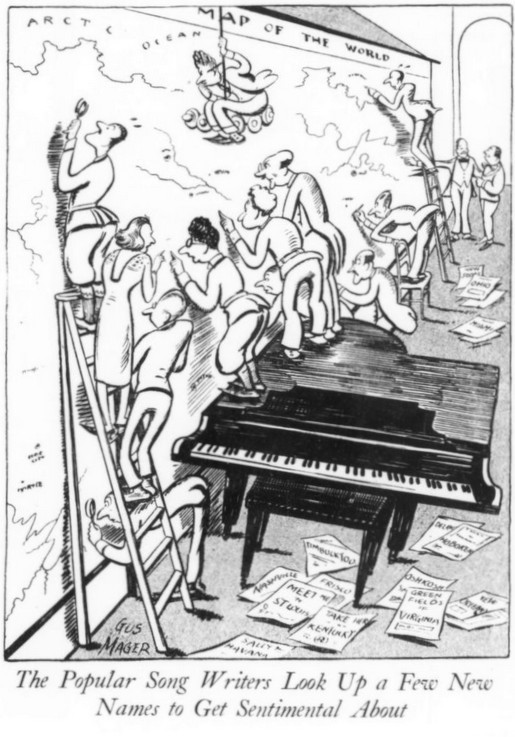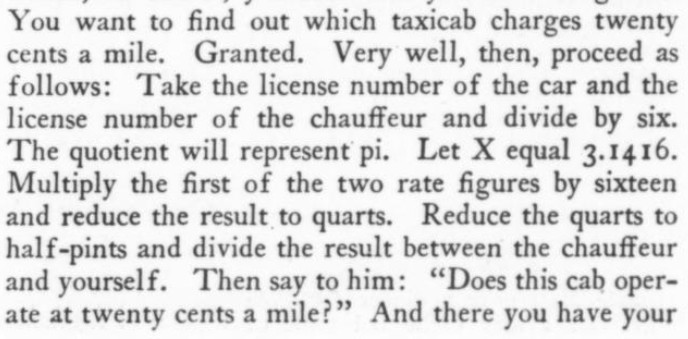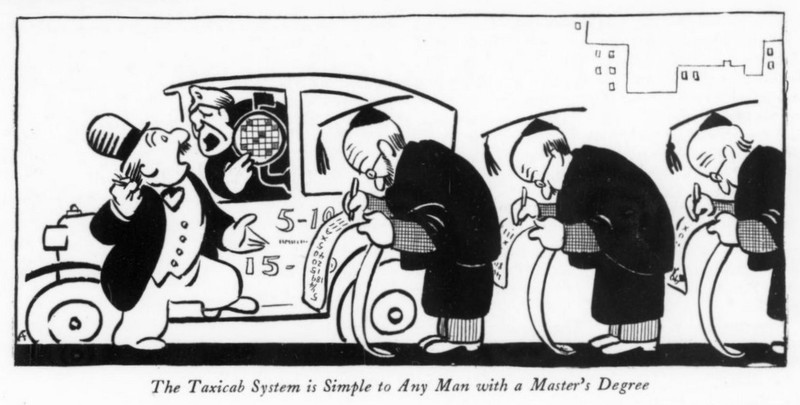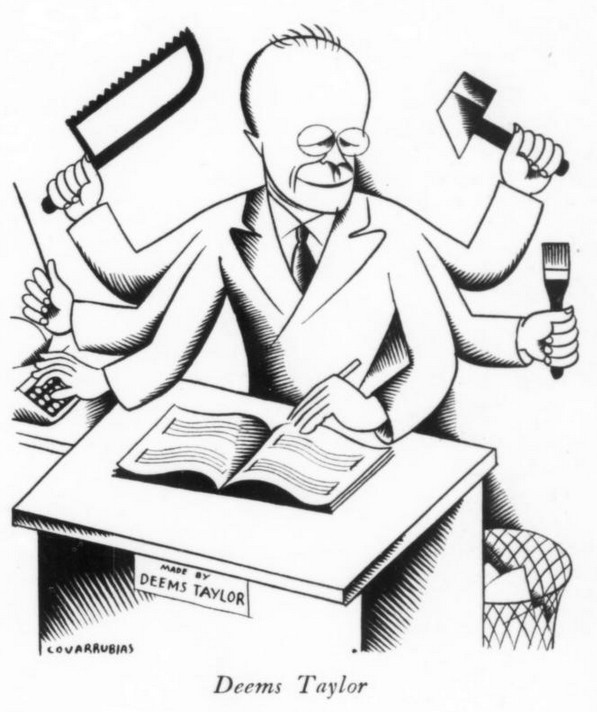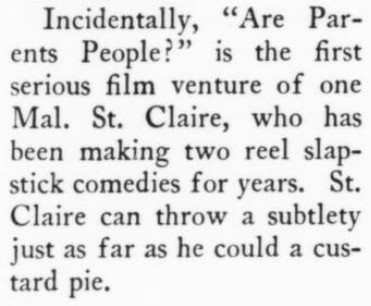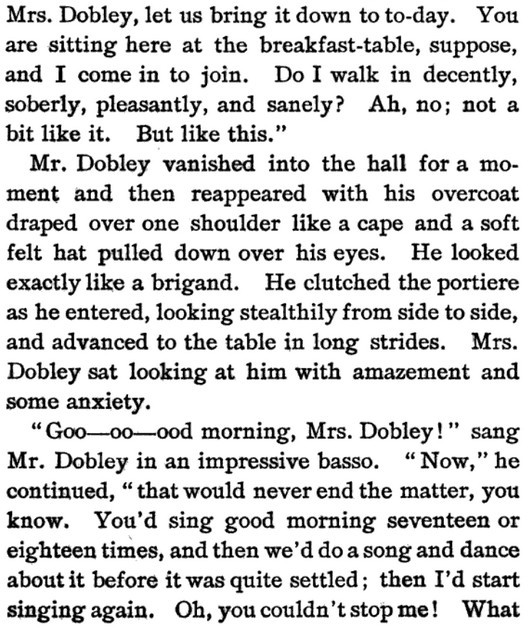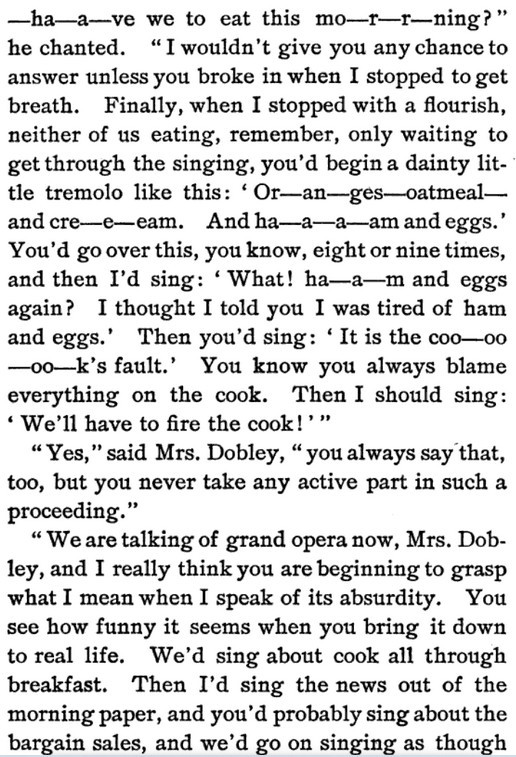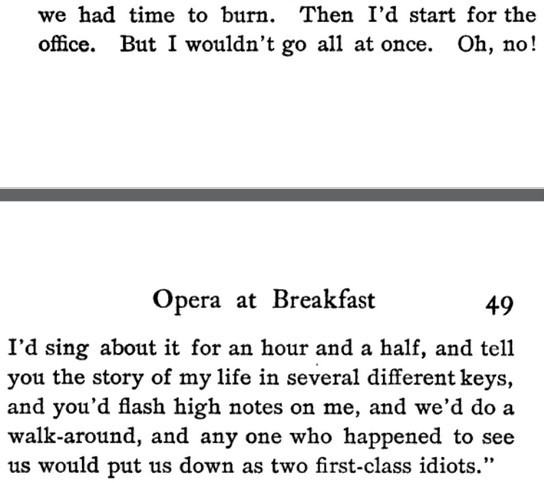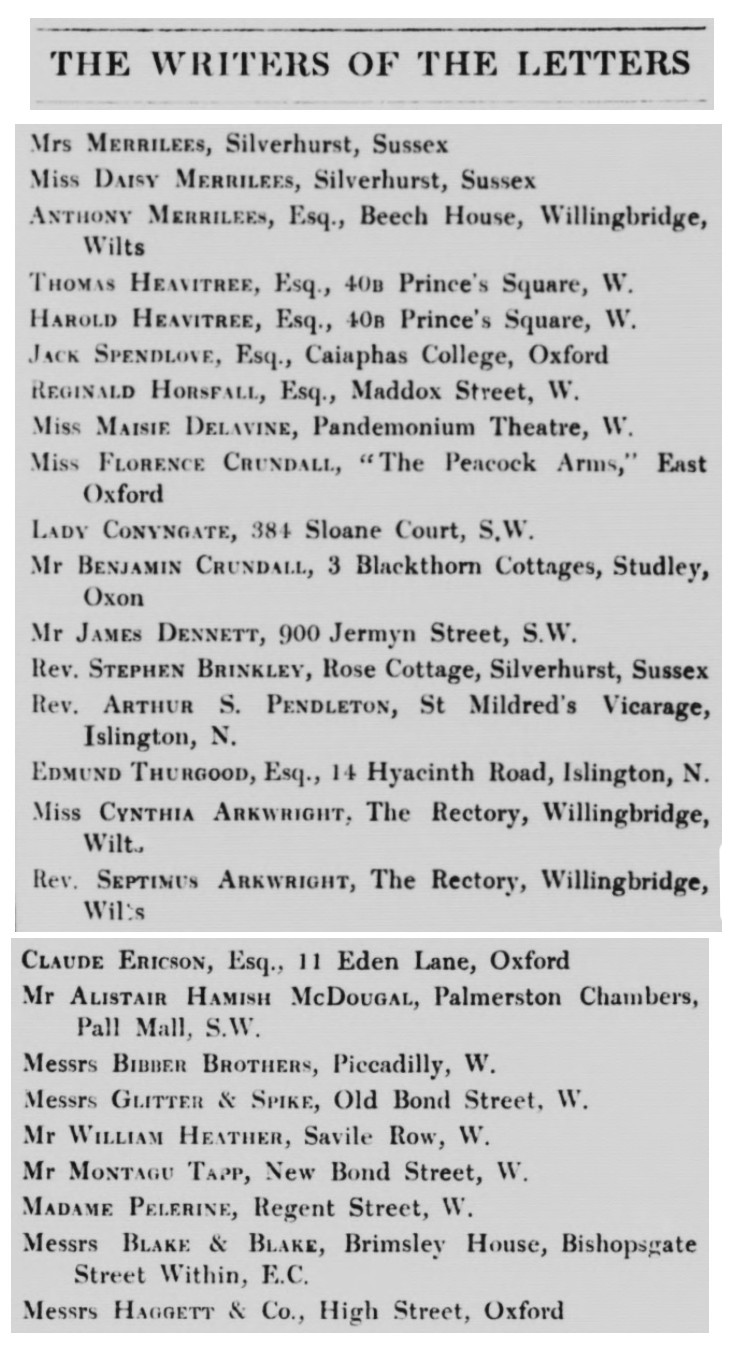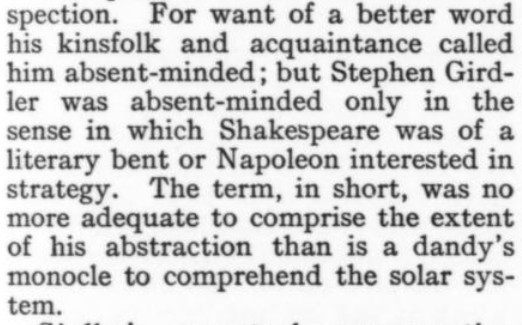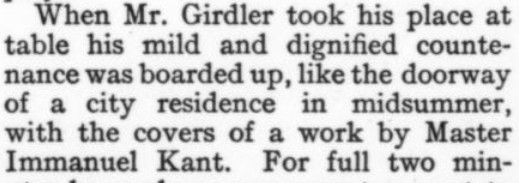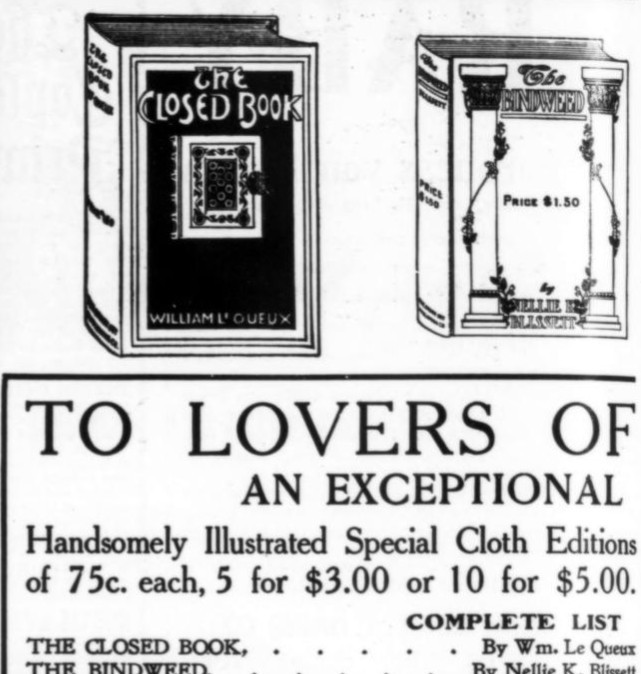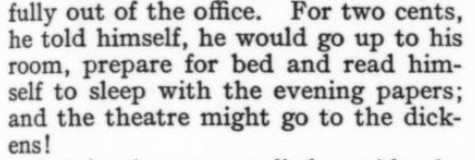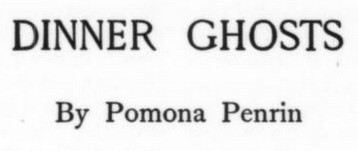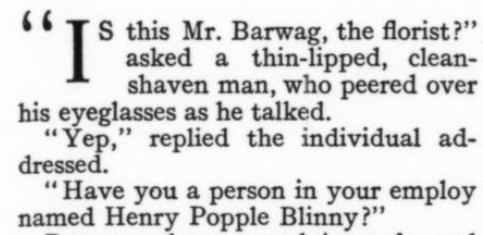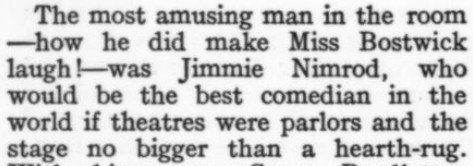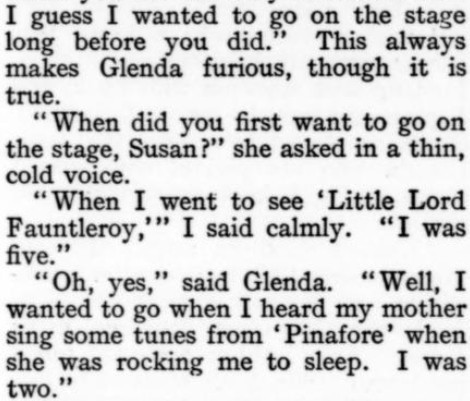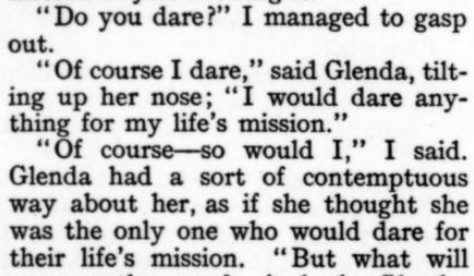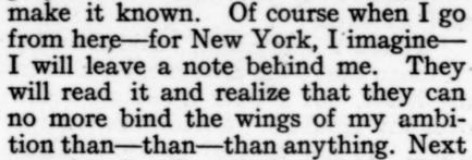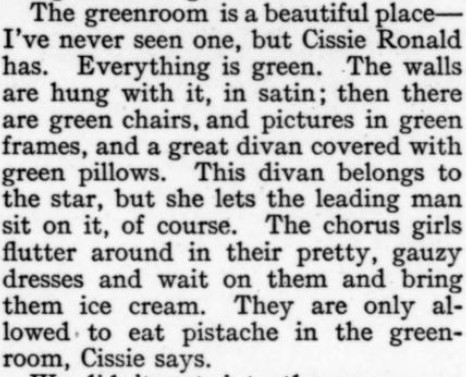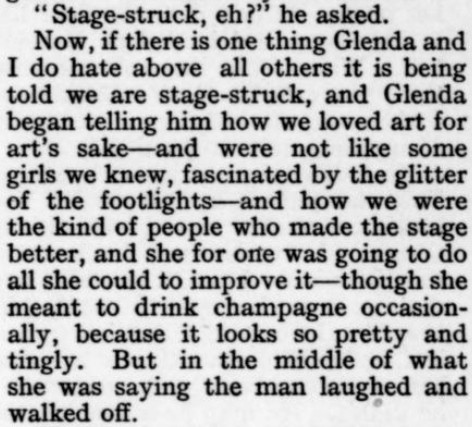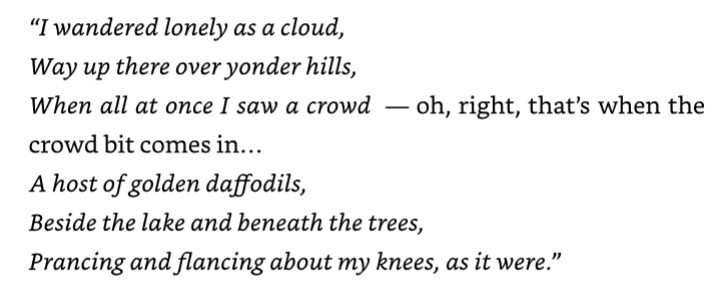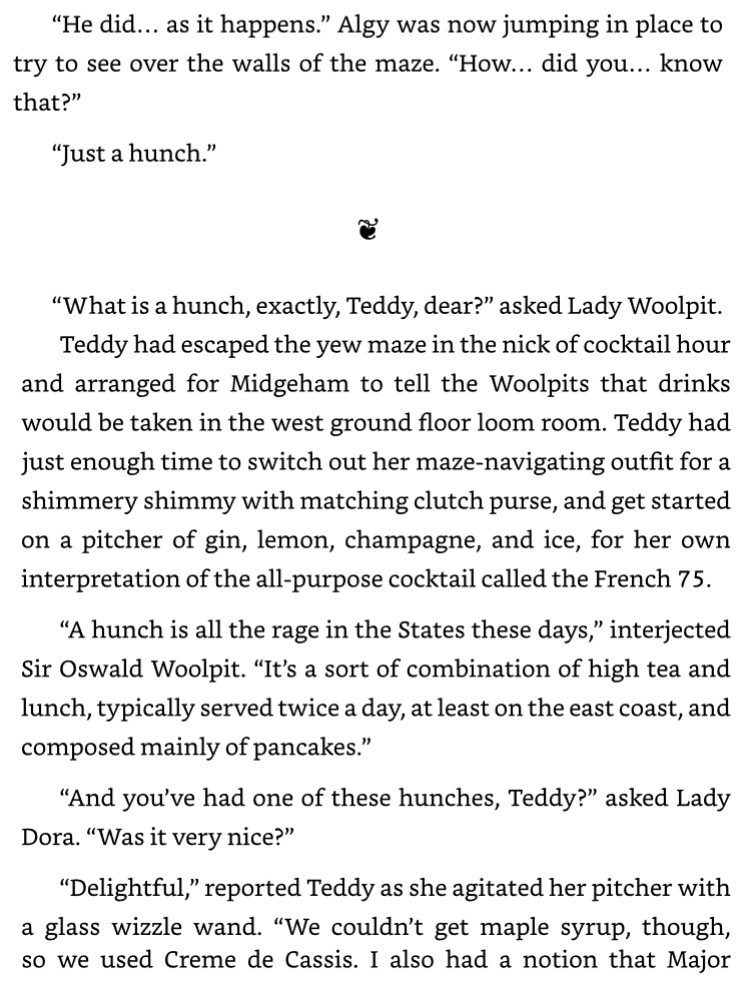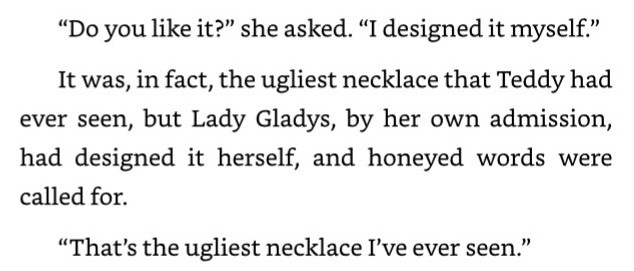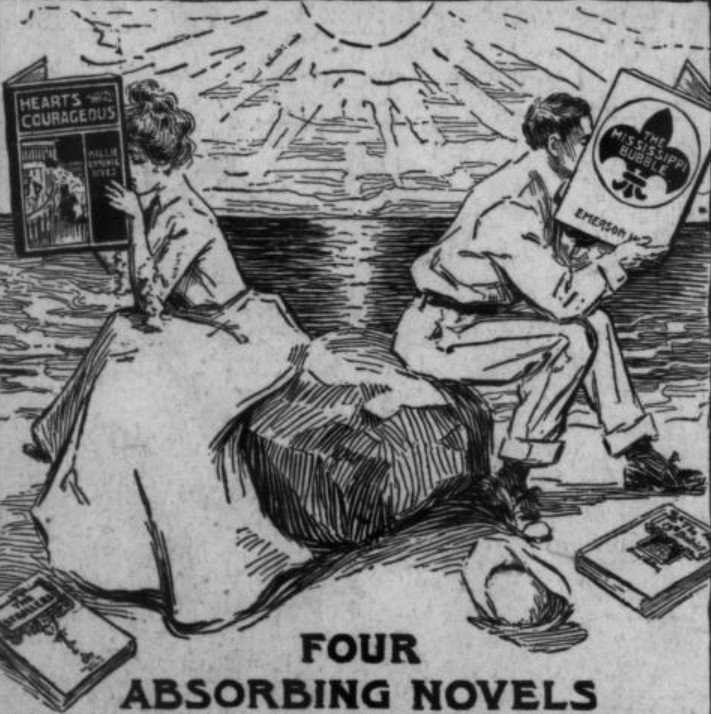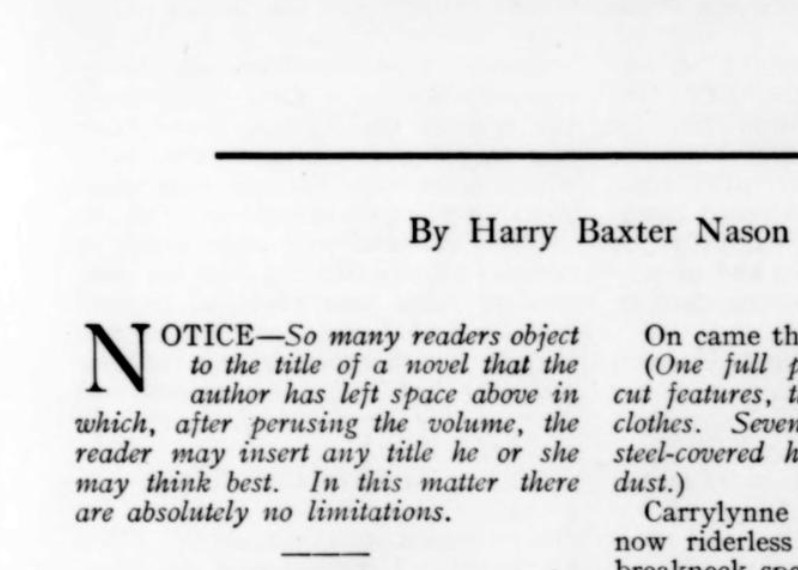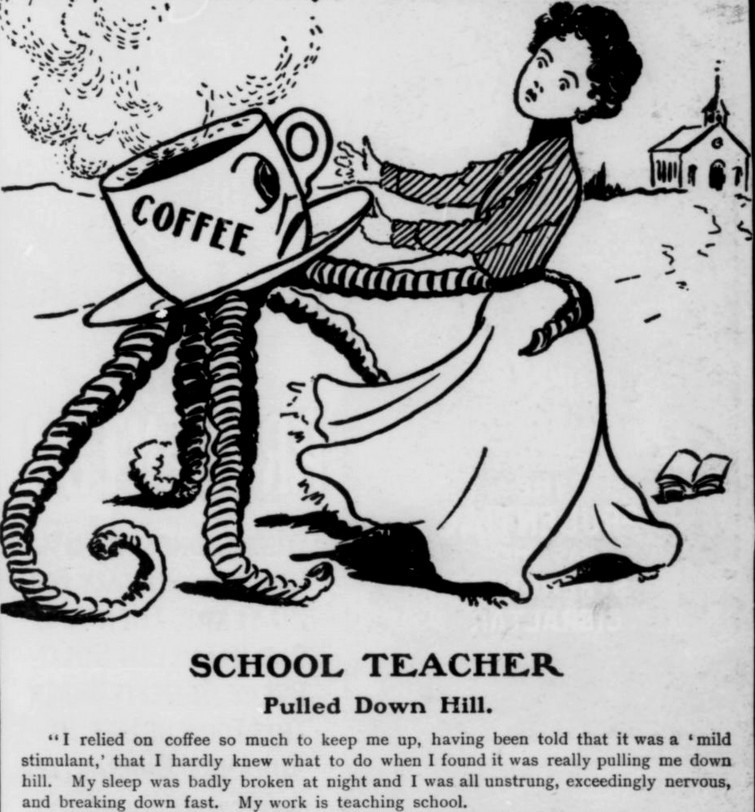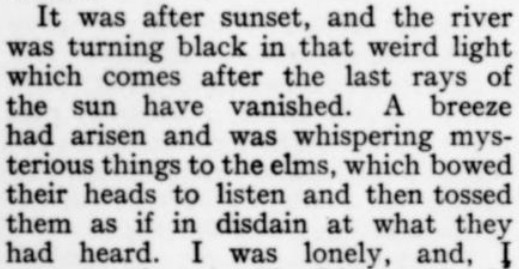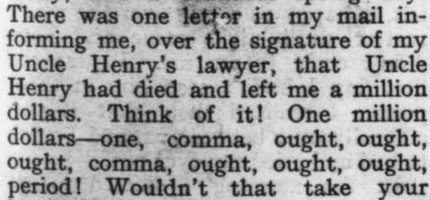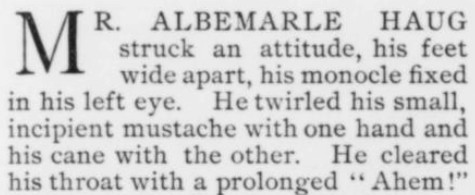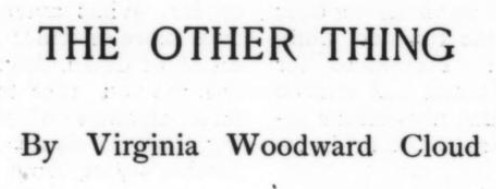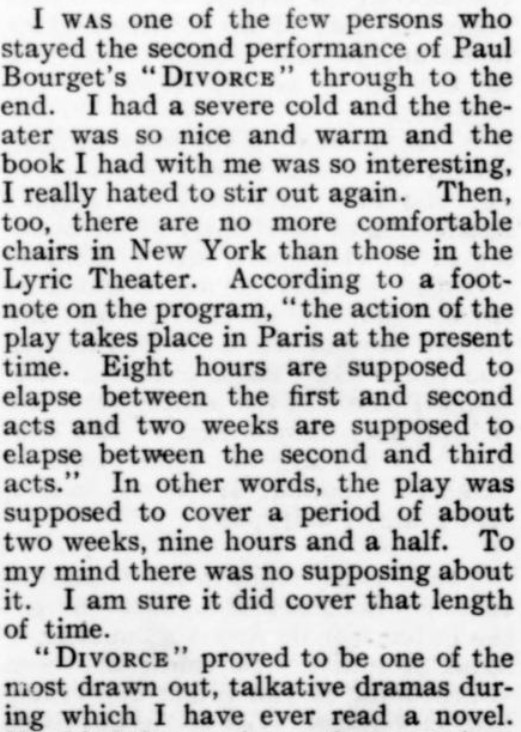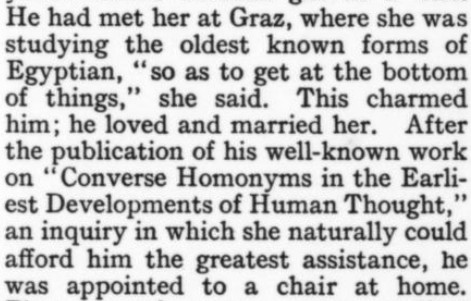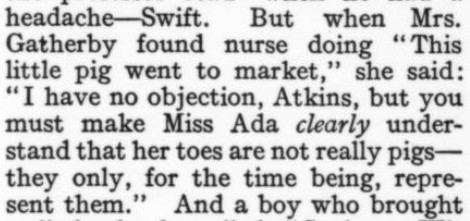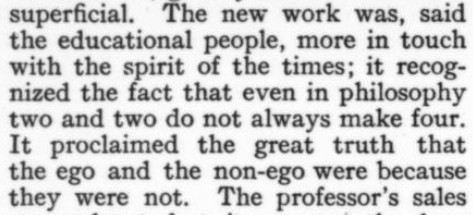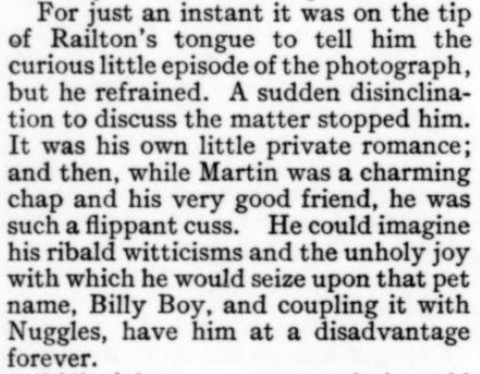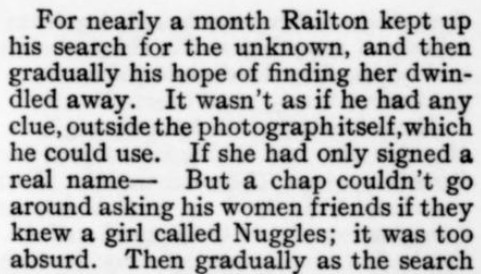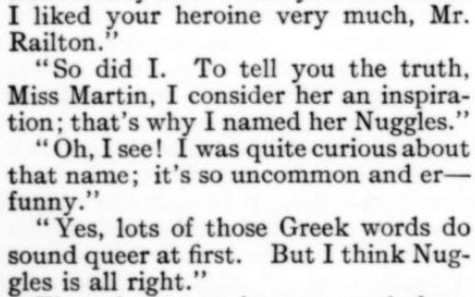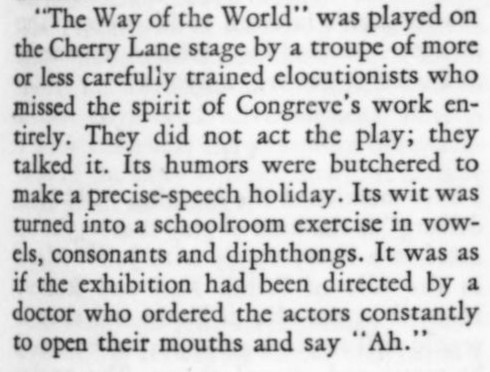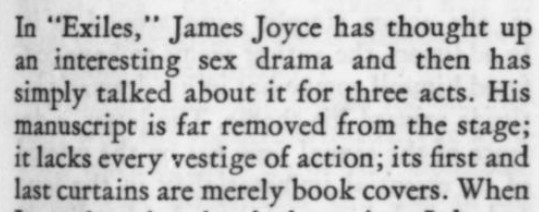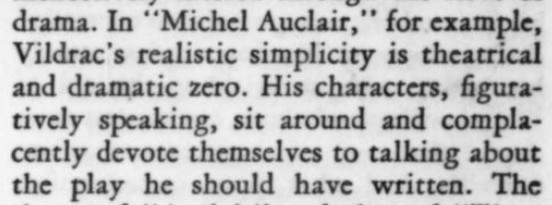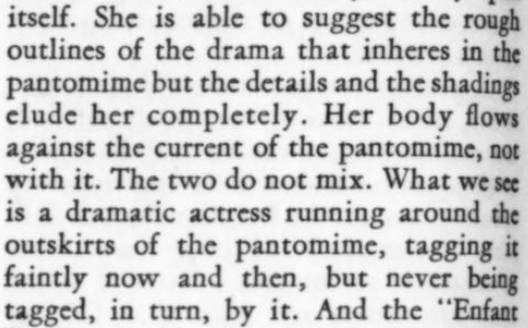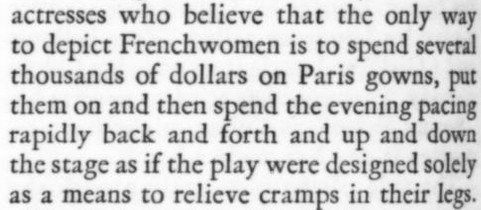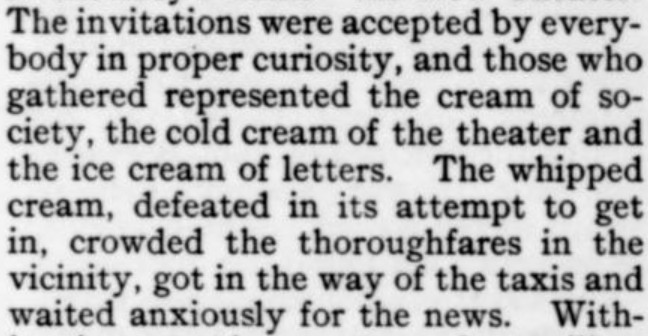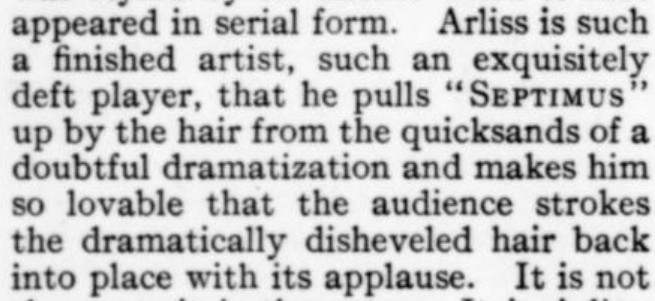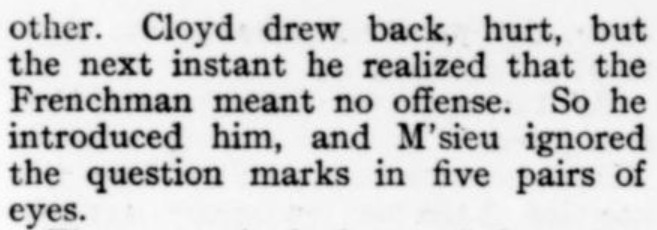








 |
|
|
 |
 |
 |
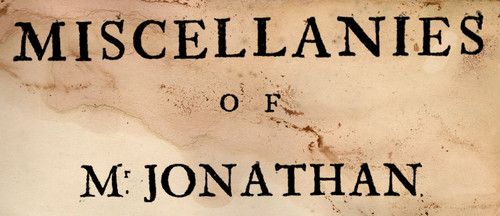
unearths some literary gems.
From Fanny's First Play, by Bernard Shaw:
[The apostropheless contractions, according to the Gutenberg notes, are how Shaw published it.]
***
SAVOYARD. As you dont like English people, I dont know that youll get on with Trotter, because hes thoroughly English: never happy except when hes in Paris, and speaks French so unnecessarily well that everybody there spots him as an Englishman the moment he opens his mouth. [This bookends a passage I recall from a Delano Ames novel.]
***
SAVOYARD. Mind you dont chaff him about Aristotle.
THE COUNT. Why should I chaff him about Aristotle?
SAVOYARD. Well, I dont know; but its one of the recognized ways of chaffing him.
***
TROTTER. Well, I must say!
FANNY. Just so. Thats one of our classifications in the Cambridge Fabian Society.
TROTTER. Classifications? I dont understand.
FANNY. We classify our aunts into different sorts. And one of the sorts is the "I must says."
***
TROTTER. If you had been classically educated—
FANNY. But I have.
TROTTER. Pooh! Cambridge! If you had been educated at Oxford, you would know that the definition of a play has been settled exactly and scientifically for two thousand two hundred and sixty years.
***
BANNAL. [sulkily] Oh, very well. Sorry I spoke, I'm sure. [Ha, it's Kenneth Williams in Round the Horne.]
***
|




 |
|
|
 |
 |
 |

unearths some literary gems.
From The Smart Set, 1902-1904(?)
[I neglected to keep meticulous track of the 1904 vs. 1905 cusp as I wrapped up this batch, hence the uncertainty in the subject line.]
***
"Aren't they dears, Mr. Popover?"
***
She was one of that kind...that is just bound to graduate with honors clinging to her degree as thick as barnacles.
***
His countenance betrayed impenetrable solemnity, if that can be called betrayal.
***
[Additional snippets attached. "The Inside Story of It" refers, prosaically, to the "inside story" of some boring contretemps--i.e., you've heard about the affair, now here's the inside story of it. But when I first encountered the title, I naturally read it with implied italics on "It"--i.e., here, at last, is the inside story of It, for everyone who's always wanted to know about It!]
[Bonus character name: Hector Brisbane Snale]
|



 |
|
|
 |
 |
 |

unearths some literary gems.
From "Nuggles," by Aquila Kempster:
"Rodney W. Martin, parted in the middle with a 'William.'"
[Three more snippets attached. The premise is that the protagonist is trying to locate a woman whom he's seen only in a photo, in which she's identified herself only by the presumed pet name of Nuggles. When they ultimately meet, and he's embarrassed to have blurted out "Nuggles" in his surprise and joy, he explains it away by the ploy of saying it's a positive expletive, originating with the Greek. She, for her part, doesn't recognize the word ("What was it--Guggles?"); and it also turns out she's read the novel he's recently written in which he's called the heroine Nuggles in her honor...and so he has to double down on the word's provenance. Ha! And it Just Goes to Show: The only reason I bothered with this story, as I glanced through the Smart Set table of contents, was a faint hope that a story called "Nuggles" would pay off. I was prepared for some tedious disappointment like a sea yarn or a dog story--but hooray!]
|




Page 16 of 64

> Older Entries...

Original Content Copyright © 2025 by Craig Conley. All rights reserved.
|




